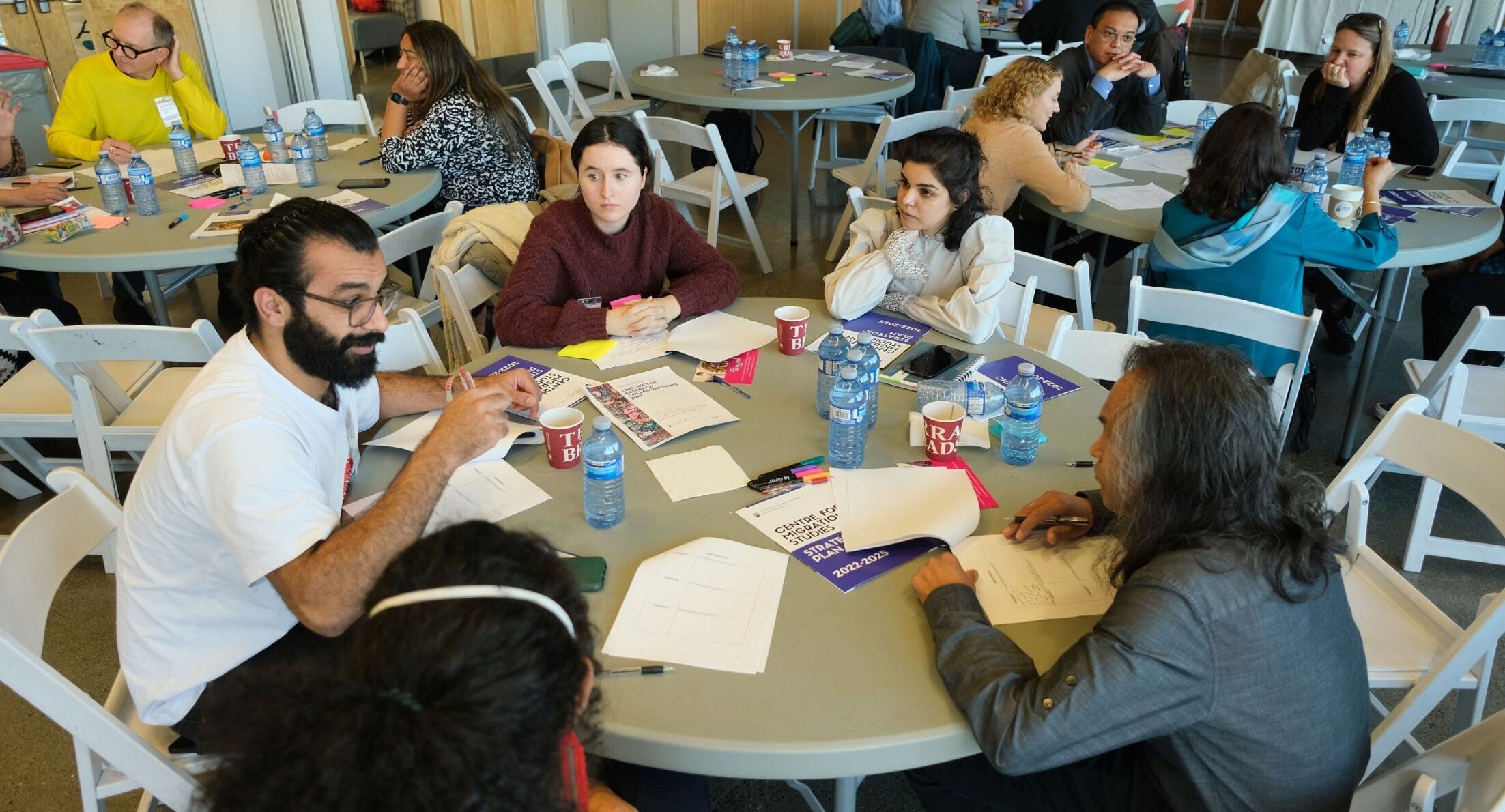To lay a solid foundation for CMS-Sector collaborations, a key suggestion throughout the day emphasized exploring the dynamics between researchers/academics and the sector. The goal was to shed light on unfamiliar realities on both sides and consider how these realities can shape our relationships.
Building Relationships in a Good Way
A panel featuring representatives from both sides introduced some of the elements that might need further exploration as specific collaborations happen. Those elements include commonalities and differences in research interests, community engagement within the academic reward system, funding limitations and stressors in the Sector, and the issue of research capacity.
Participants shared a significant amount of information about those elements and the idea of building relations/understanding each other. Some prevalent interconnected themes we have identified from the data and that will be incorporated into the CMS-Sector Collaboration Framework include:
- Collaboration-related topics: Funding and co-creation, Risks, Boundaries/Scope, Common and different interests (academic freedom vs Sector needs)
- Research Capacity (priority area?)
- The concept of Community and Community Representation
- Networking
- Role of students
- The political realm of research within CMS-Sector collaborations
- Research methodology: Arts, Indigenous and other non-Western approaches
Specific sharings from the “voicing walls” and the group activities include:
- Where is community in this discussion?
- Political approach to advocate for community organizations for research
- Co-creation is needed, multi-sectoral
- Not extractive research/relation
- Do you think that the “risk” of doing research with the sector is reflected?
- Settlement Sector needs more researchers with lived experience of migration
- Can you have rigorous, trusted research entirely separate from academia?
- Relationships built as part of a funding application (and be built in before applying for funding)?
- Do you think resistance of academic funding to support community partners comes from the devaluing or “riskiness” of community collaborations?
- Academic Freedom? – important to “protect” intellectual freedom… what about impact responsibility? Is an entitlement or right not also connect to responsibility (Research 101 Manifesto)
- What is authentic “collaboration”?
- What are the boundaries of collaboration? – Extreme ends: what works, what doesn’t work, what’s in the middle, and where should we be?
- Learning about the sector – how can researchers help?
- Understanding how academia and the sector work – yet many people couldn’t attend because they are busy – How to address that?
- Networking formal/informal is important – Keep that going and remember to participate
- Understanding constraints of CMS/University researchers
- Prepare students better for work/research in the sector
- Relationship “container”: Principles, values, equity, lived experience and systemic issues.
We are envisioning a CMS-Sector collaborations in a way that ideally includes elements beyond a specific project, where more holistic relationships can be built, where formal and informal connections can happen, and where things can potentially grow and live outside of the CMS-Sector Collaboration Framework.
